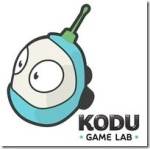Boosting STEM (science, technology, engineering, and math) education has become a priority for the government, for schools, and for tech companies. In emphasizing the importance of doing so, many point to statistics from the U.S. Department of Labor that note that while there will be more than 2 million job openings in STEM-related fields by 2014, fewer than 15% of U.S. college undergraduates now pursue degrees in science or engineering.

It isn’t enough to convince college students to major in science – or rather, by the time students hit college, it may be too late to pique their interest in the field. So many STEM efforts are aimed at encouraging the scientific and technical minds of younger students.
One way to ignite that interest is to give kids the skills so they can build and play their own video games. That’s the idea behind Microsoft’s Kodu, a visual programming language and game development tool. A product of Microsoft FUSE Labs, Kodu Game Lab enables children as young as five to design, build, and play their own games on the PC and Xbox.
STEM Education Through Xbox Game Development
A free download, Kodu Game Lab doesn’t require any programming experience. Its language is entirely icon-based, and with it, children can drag and drop icons in order to create their own games and worlds. Even though it doesn’t require knowledge of a programming language, Kodu does help develop important programming skills, in part by getting children to think about “if/then” statements and the idea of actions and conditions.
Microsoft is releasing a new version of its Kodu Game Lab today, and it’s also kicking off its Kodu Cup Competition for students ages 9 to 17. The competition asks kids to design their own video game using Kodu, and the winners will compete for a $5000 prize for themselves, along with $5000 for their school and a trip to the worldwide finals of Microsoft’s Imagine Cup competition.
According to Gabrielle Cayton-Hodges, a research fellow at the Joan Ganz Cooney Center at Sesame Workshop, there are many educational benefits to teaching children how to play and program video games. She argues that “learning how to create and edit such a system is learning critical analytic skills including systems thinking, problem solving, iterative design and digital media literacies.”
Kodu is just one of many great tools that encourage kids to code. You can see some of our other recommendations here and here.

















